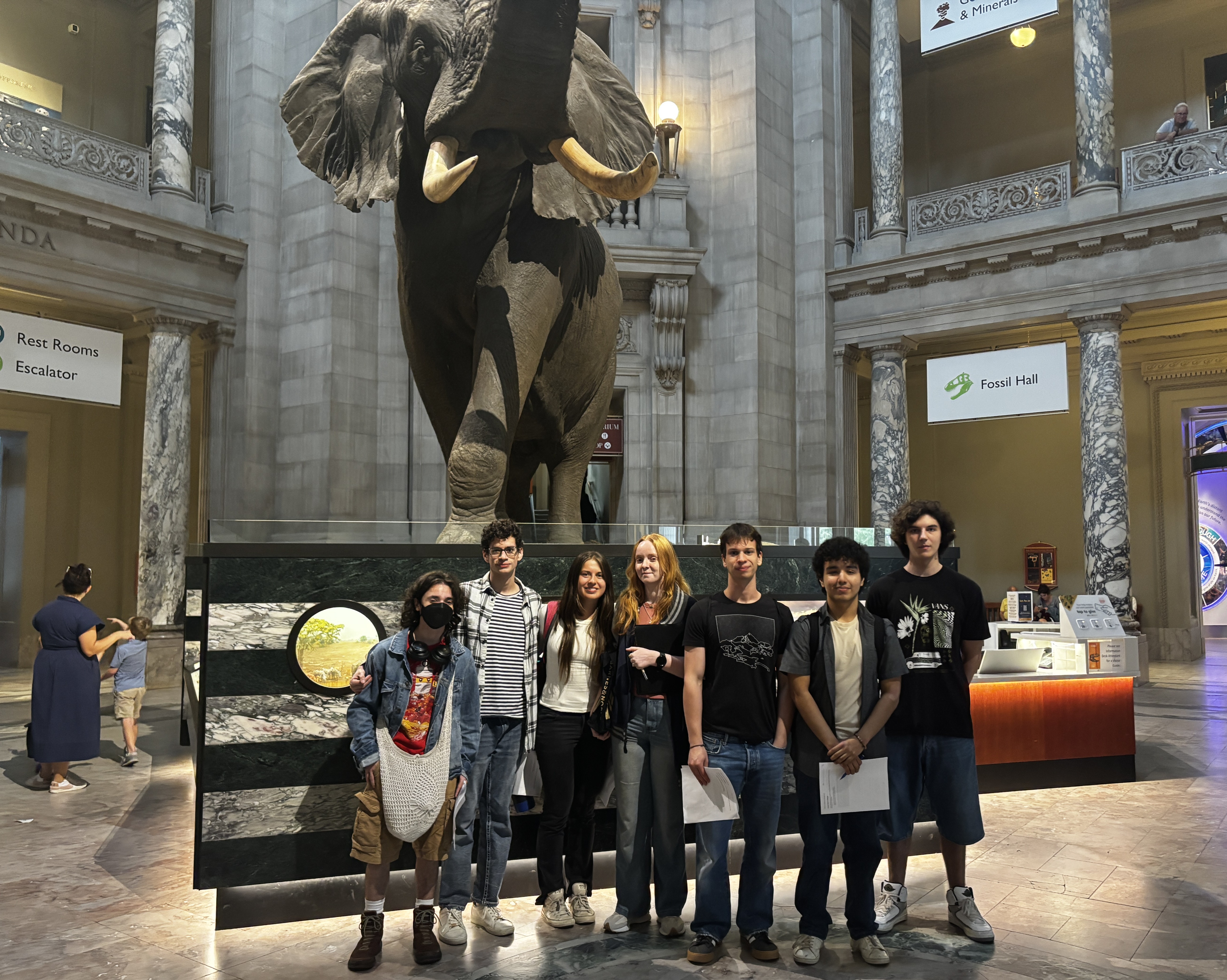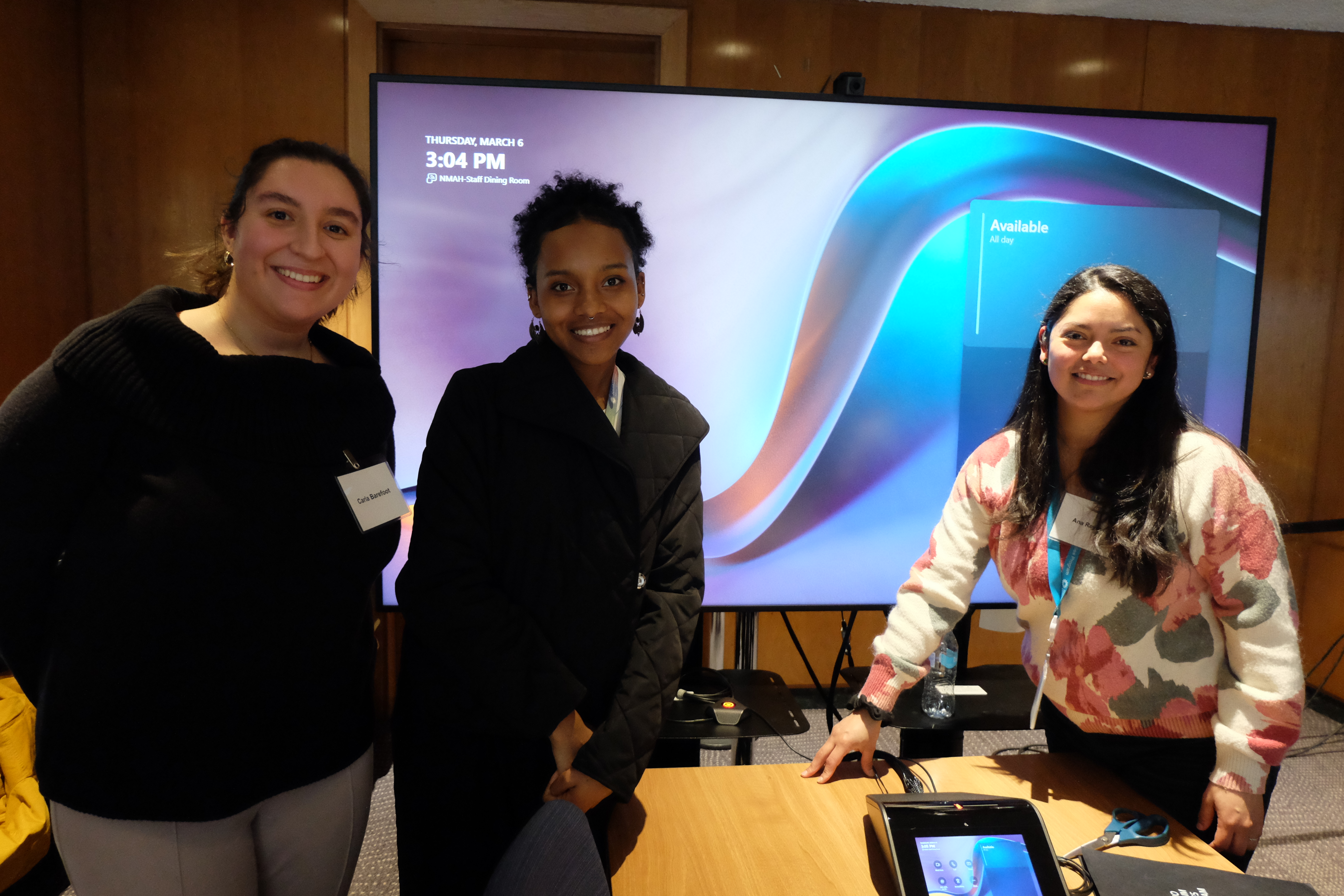by Professor Cassandra Carter Date of Visit: November 19 Introduction On November 19, students in…
Our April 22nd seminar was hosted jointly by the National Museum of American History (NMAH) and the Smithsonian’s Center for Folklife and Cultural Heritage (CFCH). Dr. Margaret Salazar-Porzio, Curator of Latinx History and Culture in the Division of Home and Community Life at NMAH began the afternoon by helping us understand how museums can be used as pathways to public problem solving. Using three exhibitions, Many Voices, One Nation, ¡Pleibol! In the Barrios and the Big Leagues / En los barrios y las grandes ligas, along with a brand new exhibition-in-development on the topic of Latinx Youth Movements, she spoke about what is involved in collecting, building and preserving community archives and collections as a tool for the public good. She addressed how public history can provide opportunities for working closely with communities using a systems approach to public problem-solving. Fellows were reminded of the need to be able to put ourselves in others’ shoes if we are going to develop a better understand of who we are and of our own relationship to the world. She talked about the need for diversity work to encourage active engagement of visitors and Fellows had the opportunity to hear how Smithsonian staff work to do this within each exhibit they develop.
The Center for Folklife and Cultural Heritage seeks to promote greater understanding and sustainability of cultural heritage across the United States and around the world through research, education, and community engagement. It does this through programs and projects such as the annual Smithsonian Folklife Festival, Smithsonian Folkways Recordings, Cultural Sustainability initiatives, documentary films and videos, educational materials, exhibitions, fellowships and internships, publications, and symposia. Dr. James Deutsch, Curator of Folklife and Popular Culture at CFCH and Dr. Sojin Kim, Curator at CFCH focused their presentation on the ways in which CFCH work on migration and immigration is addressing the 21st-century challenges that are the focus of this year’s Fellowship theme. They spoke about working to engage the public in issues that are potentially contentious through programming that highlights culture and heritage, an approach that fosters new understandings. Fellows had ample opportunity to ask questions about the various formats they work with, and how each allows them to address the current Pandemic and also the escalating racial tensions resulting from the increased awareness of racial inequities over the past year. Each of these presents challenges, but also opportunities to use the resources and various format of CFCH in ways that inform and educate.
All left the afternoon energized, with new ideas to incorporate into their own work with students.





This Post Has 0 Comments